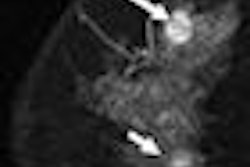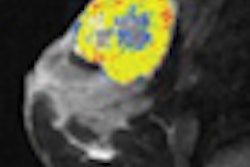Dear MRI Insider,
How does preoperative MRI influence the time interval between diagnosis and definitive therapy and the type of definitive therapy in women newly diagnosed with breast cancer?
Researchers from Yale School of Medicine in New Haven, CT, and the University of Iceland in Reykjavík discovered that preoperative MRI in this patient population led to the detection of additional sites of ipsilateral tumor in 12% of the cases analyzed, and contralateral tumor in 3% of the cases.
However, the study also noted that preoperative MRI was associated with significantly increased time to definitive surgery, and seemed to influence some women to choose mastectomy without tissue confirmation of additional cancer.
Details on this new research are available in this issue's Insider Exclusive.
Also in this issue, staff writer Eric Barnes reports on a new American Heart Association (AHA) committee statement on the use of coronary CT angiography and MR angiography that recommends against screening asymptomatic individuals for coronary artery disease.
The AHA statement, which has been in the works for years and, therefore, doesn't include the latest research developments, urges cautious use of the modalities while highlighting the need for more research, careful reporting of trial results, and improved technology.
In other features, a new study from the University of Wisconsin School of Medicine and Public Health indicates that false-positive MRI diagnoses of medial meniscal tears are more common for longitudinal tears than for other tear types. The researchers also concluded that false-positive diagnoses are more common with MRI abnormalities at either the superior surface or the meniscocapsular junction.
AuntMinnie.com also presents the third installment in the preventing infection in MRI series by Dr. Peter A. Rothschild. This chapter discusses how the current state of MRI practice management contributes to poor infection control policies.
In case you missed Dr. Rothschild's earlier contributions, part I and part II of the series on healthcare-associated infections and MRI safety guidelines are still available in the MRI Digital Community.
Until the next edition of the MRI Insider, keep tabs on groundbreaking research in between and after summer vacation days here in the MRI Digital Community.




















